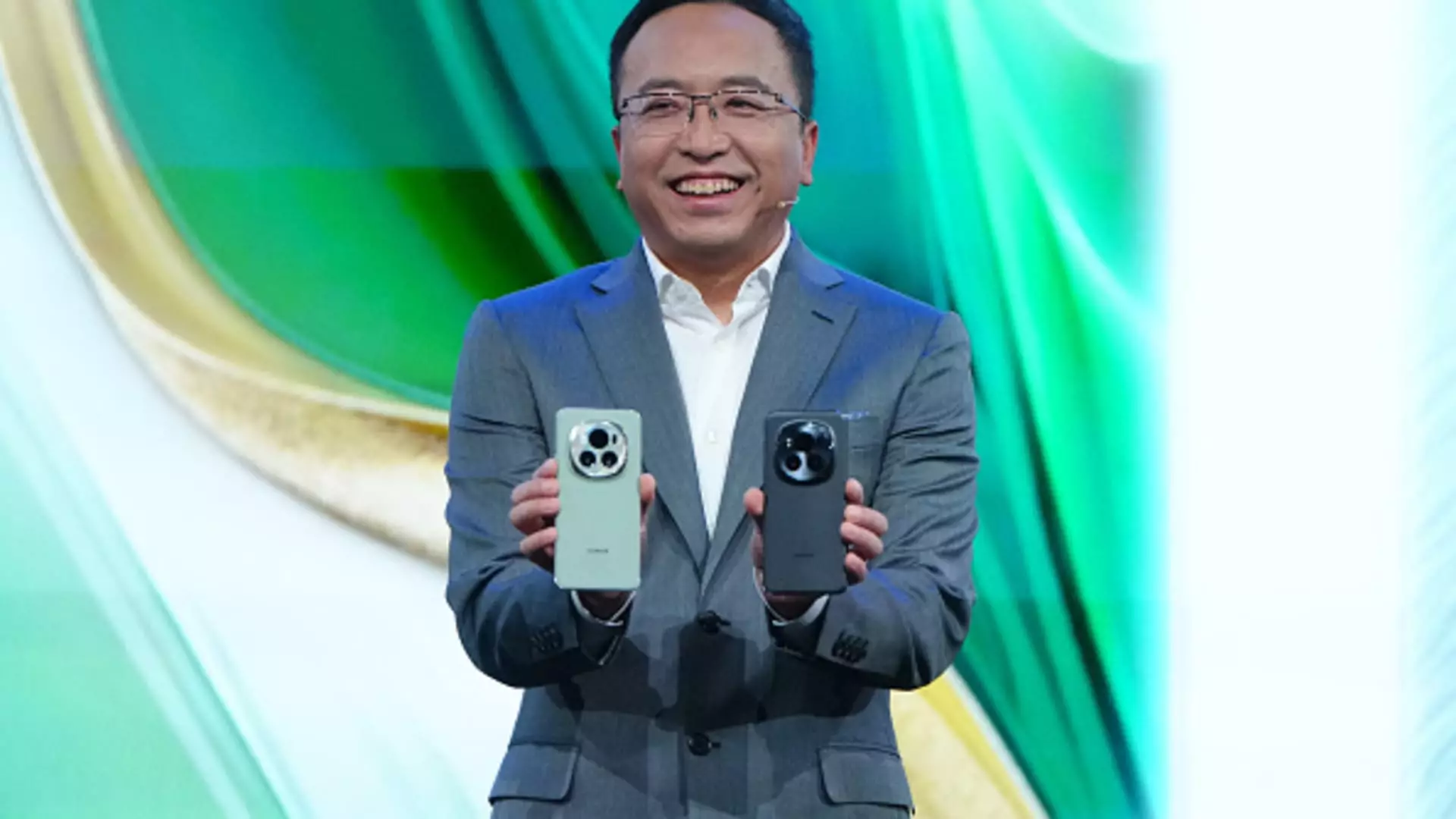The recent resignation of George Zhao from his position as CEO of Honor marks a pivotal moment for the company. Zhao, who has been instrumental in the brand’s resurgence following its separation from Huawei, cited personal health reasons for his departure. His announcement, described as “the most difficult decision” of his career, illuminates the personal challenges leaders often face behind the scenes. The company has expressed gratitude for his contributions, acknowledging how his strategic vision helped redefine Honor’s market presence, particularly in international arenas.
Stepping into Zhao’s shoes is Jian Li, who has spent four years in various senior roles within the company. Li’s background provides a foundation for a continued push toward innovation and expansion. Despite Zhao’s robust legacy of launching advanced smartphones and focusing on high-end products, Li’s leadership will be characterized by an emphasis on distinguishing Honor in an increasingly crowded market. With many consumers still unfamiliar with Honor outside of China, Li faces the challenge of building a stronger international brand identity.
Honor’s upcoming IPO, first announced earlier in 2023, signifies its ambitions to solidify its foothold in the tech industry. The company aims to navigate a path of growth and recognition, especially in Western markets. Honor’s historical context—a spinoff from Huawei designed to circumvent U.S. sanctions—placed the company in a sensitive position. However, under Zhao’s leadership, the brand saw significant growth, particularly in its domestic market where it captured over 15% of the market share by 2024. This momentum should serve as a launchpad for Li to build upon.
With Zhao’s focus on developing high-end, innovative technology, including foldable smartphones and AI features, it is essential that Li and his team maintain this dedication to premiumization. Analysts argue that ongoing innovation will be crucial for Honor to differentiate itself from more established competitors like Samsung and Apple, particularly in lucrative markets such as Europe. As Neil Shah from Counterpoint Research suggests, maintaining strong collaborations with leading component suppliers will be instrumental for Honor’s success in upholding its advanced technological edge.
The road ahead is clearly filled with challenges for the company, especially regarding brand recognition outside of the Chinese market. While Honor’s anticipated innovations offer hope, the fierce competition compounded by the need for a coherent global marketing strategy cannot be ignored. Jian Li’s leadership will likely hinge on finding a way to resonate with international consumers, ensuring Honor does not remain a hidden gem but becomes a prominent name in the smartphone landscape.
The transition from Zhao to Li represents more than just a change in leadership; it encapsulates the ongoing evolution of a brand vying for global prominence in an unpredictable technological marketplace. How well Honor adapts to these changes will ultimately be a testament to its strategic foresight and agility in a rapidly changing industry.


Leave a Reply